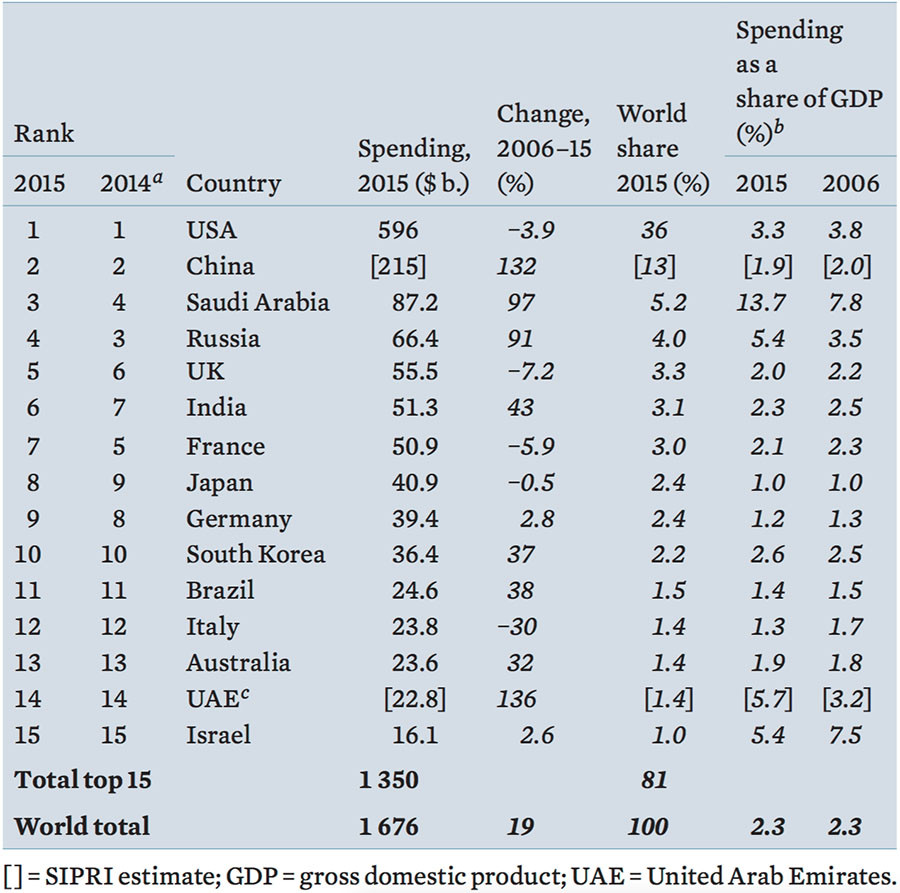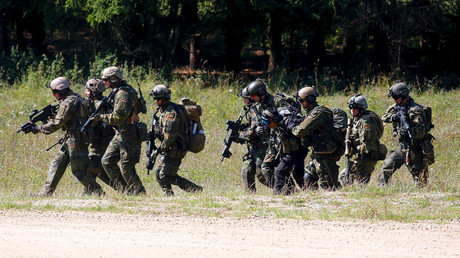According to a report from the Stockholm International Peace Research Institute (SIPRI), the world’s overall military expenditure grew by one percent last year, reaching $1.7 trillion.

The US military expenditure fell 2.4 percent last year, the slowest pace since 2011. Despite this, Washington still spends 36 percent of the world’s total arms budget.
Ruble depreciation has pushed Russia from the top three. Saudi Arabia overtook Russia’s position, spending $87.2 billion on its military program last year, compared to Moscow’s $66.4 billion.
SIPRI, the Swedish peace research institute, has tracked a large increase in spending by countries bordering Russia and Ukraine—namely Estonia, Latvia, Lithuania, Poland, Romania and Slovakia.
In a nutshell: NATO chief vows to make US allies ramp up defense bills citing ‘Russian aggression’.
Spending in Western Europe contracted 1.3 percent, but the authors of the research have noticed it has been the lowest annual decline since 2010 which marked the beginning of the fall in spending.
According to SIPRI, France’s expenditure has diminished by 5.9% compared with 2006 and now represents 2.1% of France’s GDP in place of 2.3% ten years ago. Standing at 50.9 billion dollars, it represents nevertheless 3% of world military expenditure. Above all, France has contributed greatly to other nations’ expenditure, by selling large quantities of military materials, notably to Saudi Arabia whose purchases have sky-rocketed - besides, the Saudis are suspected of having acquired the atom bomb.
The most dramatic oil revenue-related reductions in spending in 2015 were seen in Venezuela (–64 percent) and Angola (–42 percent). SIPRI also reports a decrease in military spending in Bahrain, Brunei, Chad, Ecuador, Kazakhstan, Oman and South Sudan.
“Military spending in 2015 presents contrasting trends. On the one hand, spending trends reflect the escalating conflict and tension in many parts of the world; on the other hand, they show a clear break from the oil-fuelled surge in military spending of the past decade. This volatile economic and political situation creates an uncertain picture for the years to come,” said SIPRI’s Dr Sam Perlo-Freeman, who’s in charge of the research.

NATO soldiers in exercise